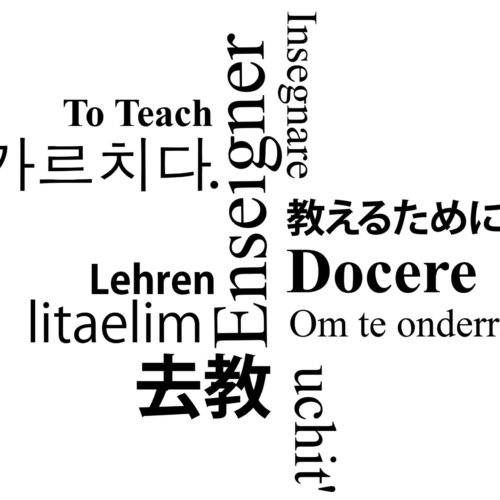Public Policy Fellow Brings Campaigning to the Classroom
 “Students, whether on the policy or political side, have an ability to make an impact,” said Thomas Irwin, Senior Fellow in Public Policy at the Gephardt Institute for Civic and Community Engagement at Washington University in St. Louis. Irwin, a veteran in Missouri politics, teaches a one-credit course in the fall, “Just Do It! Running for Political Office,” which helps students run a mock campaign for public office. Irwin also teaches a class in the spring, “Just Do It: Turning your Passion into Policy,” that prepares students to testify in front of legislature. The classes are so popular that the Gephardt Institute has added a second section each semester.
“Students, whether on the policy or political side, have an ability to make an impact,” said Thomas Irwin, Senior Fellow in Public Policy at the Gephardt Institute for Civic and Community Engagement at Washington University in St. Louis. Irwin, a veteran in Missouri politics, teaches a one-credit course in the fall, “Just Do It! Running for Political Office,” which helps students run a mock campaign for public office. Irwin also teaches a class in the spring, “Just Do It: Turning your Passion into Policy,” that prepares students to testify in front of legislature. The classes are so popular that the Gephardt Institute has added a second section each semester.
In an interview with The Teaching Center, Irwin discussed his background in politics and his path to becoming a teacher at Washington University. He also touched on his decision not to use textbooks in the courses and the benefits of using news articles to explain policy and campaigning.
Irwin brings more than 40 years of political experience to the table. He earned a master’s degree in Public Administration from the John F. Kennedy School of Government at Harvard University. Irwin has worked in senior policy and chief of staff positions for politicians such as Boston Mayor Kevin White, St. Louis Mayor Vincent Schoemehl, and St. Louis County Executive George “Buzz” Westfall. From 2007 to 2018, Irwin was Executive Director of Civic Progress, a group of the 30 largest employers in the St. Louis region that addresses issues of civic importance.
How did you get involved in politics?
After graduating from college at the University of Massachusetts, I was working in a recreational center in a transitional neighborhood in Boston. I was called in to work at the Mayor of Boston’s office. I saw the whole city. I liked getting stuff done and interacting with people.
In 1976 I worked for a candidate who only won the Massachusetts primary in the presidential election. Then the Mayor of Boston sent me to St. Louis to have me help a candidate running for mayor. He won and the spring after he got elected, the Mayor of St. Louis called me and asked if I’d work for him. I came back to St. Louis with my family.
I wanted to go back to Boston so I applied to the Kennedy School. I got my degree there and after I graduated, the job offer that interested me most was in St. Louis. After a year back in St. Louis, Buzz Westfall asked me to run his campaign for County Executive and we won. That was a jumping off point for me.
How did you get the idea for your campaign class?
I was asked to be a part of a faux legislature when students were presenting. I thought the students were very capable. At some point, Amanda McBride (Bettie Bofinger Brown Associate Professor at the Brown School of Social Work and Executive Director of the Gephardt Institute for Civic and Community Engagement at Washington University in St. Louis) reached out to me and asked if I was willing to try this in class.
I suggested teaching a class on running for office. I took the premise that there would be a team. I’d give them an identity and I’d try to mix them up. If they started the class as Democrats, I’d make them a 15-year incumbent Republican to give them a sense of empathy.
For an hour a week, I give them the rudiments of running for office. For the final, each team walks into a room and makes a pitch to real local businessmen about why they should support the candidate. I say, “You have 20 minutes with a fundraiser. I don’t want you to spend 20 minutes bashing the other side.”
Why did you decide against using textbooks in the course?
I went to the Kennedy School where the model is no textbooks and mostly case studies. I use the same model for my classes. The point is to put the person in simulated situations and see if they can do it.
The issue for a one-credit course once a week is, students don’t always do the reading. I’d be wasting both our time if I assigned textbooks. Students like to read things that are current. Giving them something that’s happening right now will make them more likely to read and discuss it.
What are some of the most important lessons you present in class?
If you can’t answer the question ‘Why me?’ as a candidate, it doesn’t matter what your résumé says. There was a guy named Peter Dawkins. He was an All-American at West Point, a decorated veteran and Rhodes Scholar with no hint of anything wrong running for office in New Jersey even though he was originally from out of state. On paper it looked like a mismatch when he faced an opponent who owned a mattress store. No one thought his opponent would win but he did because he could answer the question, ‘Why me?’ A voter asked Dawkins, “Why New Jersey?” and he said, “I could choose anywhere, so I chose New Jersey.” People didn’t believe him.
Why do you think a political campaign class is important in these times?
I think there’s a real thirst for it. I get political junkies, students who are curious, and others who have never considered politics, but they think it could be fun. The advocacy class I teach in the spring is the same. I bring in real staffers and elected officials to tell it honestly and say what’s required.
I’ve come away from this experience feeling like we’re in good hands. Students, whether on the policy or political side, have an ability to make an impact.
What advice do you have for other teachers?
I tell my friends who want to teach, ‘Students don’t think your story is that fascinating.’ They’re interested in their story and their future. You can throw in anecdotes about your own life now and then, but you better know what you’re talking about. There’s someone sitting there with a laptop ready to correct you if you get something wrong.
What is your favorite part about teaching the campaigning class?
I’ve taught the class for eight years now. I’m like a pro football linebacker who has seen every play. To share that knowledge with other folks is gratifying. I’m sharing my mistakes so hopefully students don’t repeat them. It’s an extraordinary experience and I consider it an honor.




